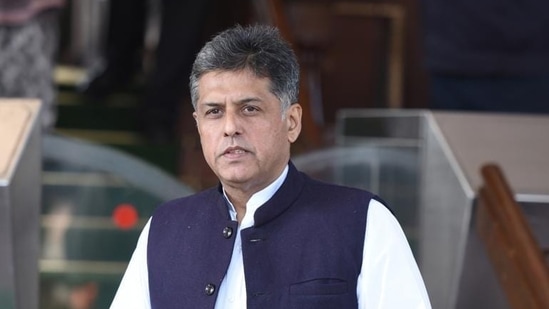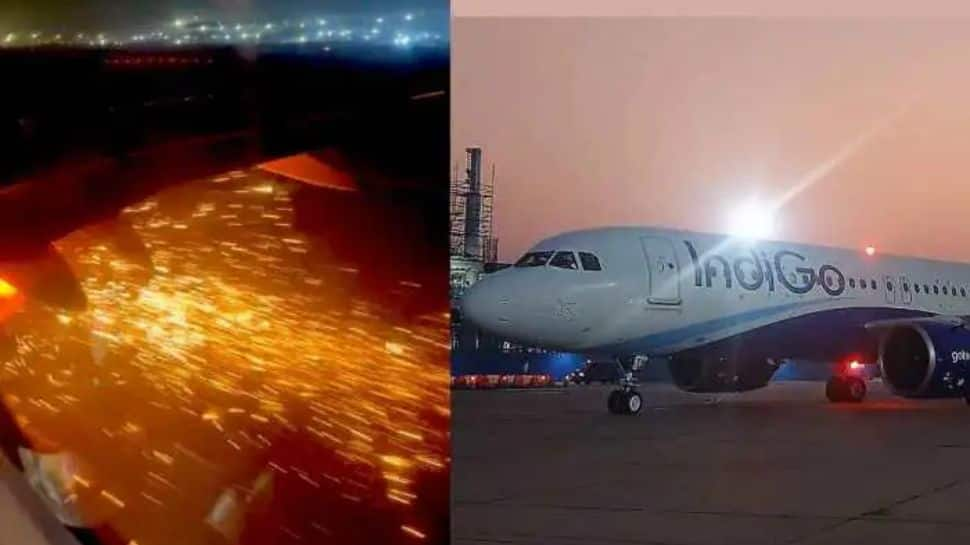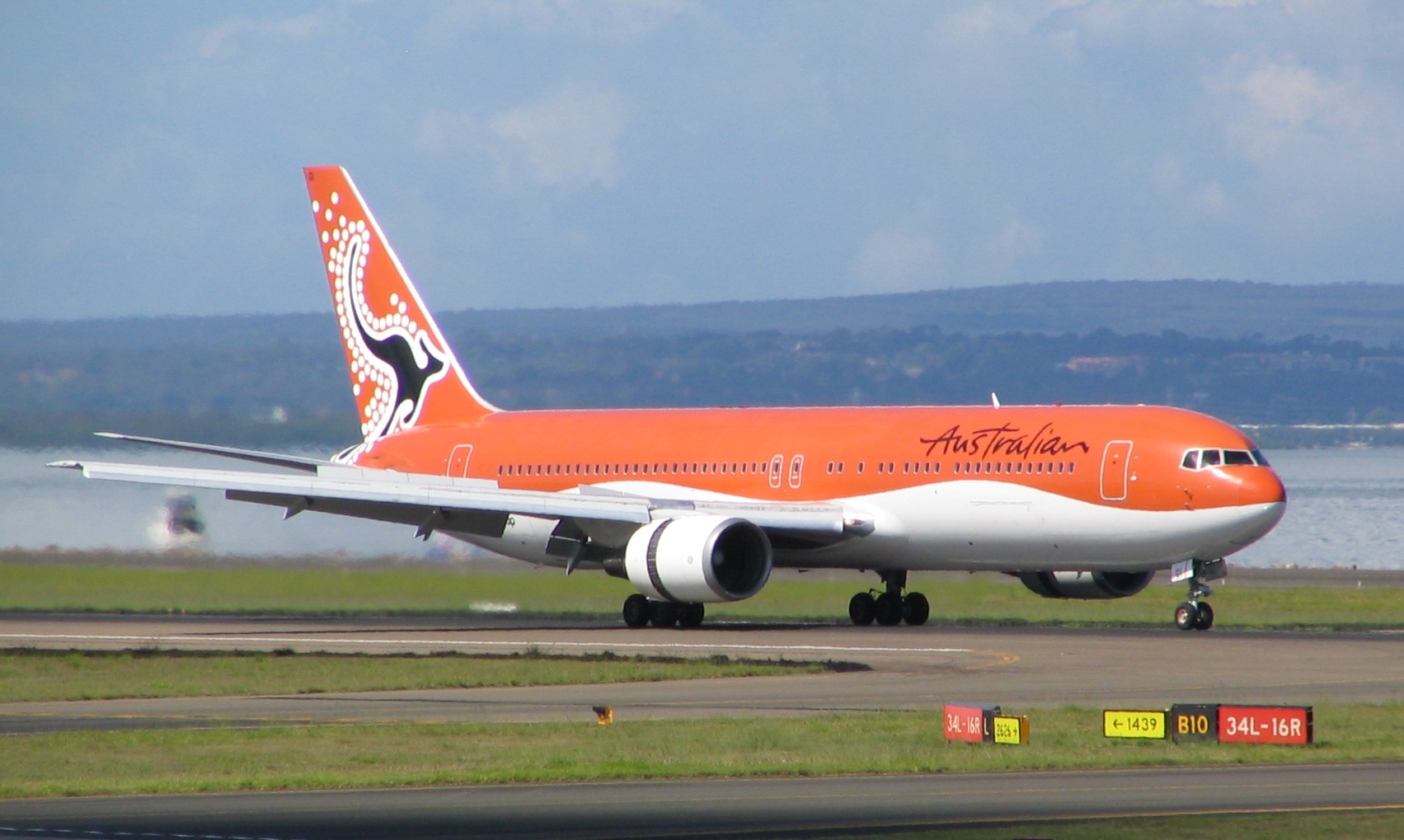IndiGo’s Flight Delays, Pilot Woes, Pathetic Safety Standards And Growing Dissatisfaction Among Passengers; A Complete Departure From International Standards – Will Indigo Please Pull Up!
IndiGo, India's largest airline, has repeatedly been scrutinised for its continuous flight delays, reported pilot woes and awful safety standards. Herein, we look into the core of these challenges, comparing IndiGo's practices with international standards observed by airlines globally. Punctuality, employee welfare, and safety standards are key benchmarks explored in the context of countries known for their exemplary aviation practices. As passengers voice their frustration and concerns grow about the airline's operational efficiency, understanding how IndiGo aligns with international norms becomes essential for evaluating its standing on the global aviation stage.

Former Union Minister Manish Tewari did not mince words as he unleashed scathing criticism on IndiGo for its chronic flight delays.
Tewari, the Congress MP, vented his frustration over the airline’s unremitting tardiness, citing instances of the 6E2159 flight from Chandigarh to Delhi being delayed by a staggering 90 minutes and the 1855 IndiGo 6E flight from Delhi to Chandigarh facing a delay exceeding 2 and a half hours.

Tewari, visibly vexed, questioned IndiGo’s once-reliable punctuality, declaring that the only reason he ever chose IndiGo was its reputation for timeliness, dismissing the rest of its services with a disdainful silence.
Not even prominent figures are spared from the grasp of IndiGo’s habitual delays, as comedian Kapil Sharma joined the growing chorus of discontent a few days ago.
In a scathing social media post, Sharma ridiculed IndiGo for keeping passengers waiting in a bus for 50 minutes, only to blame the pilot’s tardiness on traffic. Sharma, irate and incredulous, vowed never to fly with IndiGo again, questioning whether the airline believed that the 180 stranded passengers would willingly choose them in the future.
Adding fuel to the fire, director Vivek Agnihotri shared his annoyance after his IndiGo flight faced a two-hour delay. Agnihotri lambasted IndiGo for its indifferent attitude toward passengers, questioning the lack of communication and expressing disdain for the airline’s crew-flyer interaction.
The director also accentuated the dismal conditions on board, criticising filthy toilets and a lack of responsiveness from the crew, demanding accountability, and proposing that airlines should refund a portion of the airfare if flights are delayed beyond 30 minutes.
The barrage of complaints against IndiGo continues, with passengers on a flight to Bagdogra enduring an hour-long delay due to a sick co-pilot. Anupama Singh, a disgruntled passenger, criticised IndiGo for leaving travelers stranded on the plane while searching for a last-minute replacement.

Fear Of Flying High Amid Dismal Fight Safety Standards
Over the past decade, IndiGo has reported a staggering 52 air safety issues, including accidents, cementing its dubious distinction as a frontrunner in serious incidents, with 35 reported since 2013-23.
This disturbing trend is not isolated, mirroring a broader surge in problematic occurrences within the Indian aviation industry; particularly alarming are the persistent lapses in safety records and the growing discontent among passengers.
IndiGo, a major industry player, has attracted attention for compromising safety standards set by the International Civil Aviation Organization (ICAO).
Despite this, the airline paradoxically took pride in closing what it hailed as the most significant aircraft deal in history — a single purchase agreement for 500 A320 Family Aircraft, swelling its Airbus count to 1330.
While some may laud this historic feat, it does little to conceal the deep-seated concerns about the airline’s neglect of passenger safety.
IndiGo’s celebratory proclamations clash glaringly with the ongoing deterioration in its services by jeopardising passenger safety and satisfaction at 33,000 feet; the airline undermines the trust passengers place in it.
The true measure of an airline’s value lies in its service quality standards, which IndiGo seems to be neglecting gravely and regrettably, the airline persists in making serious missteps.

Should We Fly Indigo?
The erosion of trust and reputation among passengers raises pertinent questions about the wisdom behind flying IndiGo, as substantial evidence shows customers’ profound distrust for this airline.
Emphasising the significance of prioritising customer satisfaction and safety, IndiGo’s overburdened staff and fatigued pilots further deepen concerns, with reported instances of misbehaviour both in the air and on the ground.
The strenuous schedules of pilots not only raise doubts about their vigilance during flights but also prompt queries about potential compromises on critical operations during flight hours. Such compromises cast a dark shadow over passengers’ flying experiences, leaving them on edge throughout their journeys.
As a significant player in the aviation industry, IndiGo is accountable not only to regulatory standards but also to ethical considerations; however, by downplaying and undermining customer complaints and concerns, IndiGo has forsaken its moral obligation to prioritise customer service.
The persistent issue of continuous flight delays and reported pilot woes within the operations of IndiGo is not only a cause for concern domestically but also prompts a comparative reflection on international aviation standards and practices.

The challenges faced by IndiGo passengers and its pilots find stark contrasts when juxtaposed with the experiences and practices in other countries.
International Standards
1. Punctuality
In the realm of international aviation standards, the challenges faced by IndiGo in terms of continuous flight delays and reported pilot woes cast a spotlight on the stark disparities between the airline’s practices and those adhered to by carriers in various countries.
One of the critical benchmarks in international aviation is punctuality, an area where IndiGo has struggled conspicuously.
Airlines in Japan, renowned for their precision and commitment to schedules, serve as a prime example. Carriers like All Nippon Airways (ANA) and Japan Airlines (JAL) are known for their exceptional punctuality records, with minimal flight delays. This stands in sharp contrast to IndiGo’s frequent disruptions, prompting passengers to question the airline’s efficiency and reliability.
Moreover, countries like Germany boast an aviation sector recognised for its timeliness and adherence to strict schedules.
Airlines such as Lufthansa are synonymous with punctuality, ensuring that passengers experience minimal inconvenience due to delays. Such a level of operational precision remains an aspiration for IndiGo, whose recurrent flight delays have become a point of frustration for travellers.

2. Pilot Fatigue
When it comes to employee welfare and pilot management, international standards prioritise the health and well-being of crew members.
In the United States, airlines such as Delta and Southwest have robust frameworks in place to address pilot fatigue and ensure job satisfaction. Strict regulations, comprehensive training programs, and proactive measures to manage fatigue contribute to a safer and more reliable flying experience for passengers.
At the same time, IndiGo’s reported pilot woes stress a potential deficiency in aligning with these global best practices.
3. Safety Standards
The commitment to safety standards is another area where international aviation sets high benchmarks.
European aviation authorities, governed by the European Union Aviation Safety Agency (EASA), maintain stringent regulations to uphold safety across member countries with an emphasis on accountability and transparency in safety practices, which contrasts sharply with IndiGo’s reported safety lapses, indicating a need for the airline to realign with international safety standards.

Likewise, countries like Australia and Canada take a proactive approach to safety management, focusing on systems that identify and address potential risks before they escalate; thus, the preventive measures implemented by these countries contribute to a culture of continuous improvement in safety practices.
In contrast, IndiGo’s reactive measures and recurrent safety issues highlight a significant gap in meeting these global safety benchmarks –
the challenges faced by IndiGo show a clear gap when it comes to aligning with international standards in punctuality, employee welfare, and safety.
As a major player in the aviation industry, IndiGo’s ability to address these issues will not only impact its reputation but also determine its competitiveness in an industry where adherence to international best practices is paramount.
The Last Bit, the challenges faced by IndiGo in terms of persistent flight delays and reported pilot issues reveal a noticeable discrepancy when measured against international standards.
From the precision and efficiency of Japanese carriers to the robust employee welfare frameworks in the United States and the stringent safety regulations in Europe, the gaps in IndiGo’s practices are all too evident.
As the aviation industry becomes increasingly interconnected and competitive, aligning with global benchmarks is not just a matter of reputation but a necessity for ensuring the airline’s sustainability and trustworthiness in the eyes of passengers and industry regulators alike – IndiGo, for now, has a long way to go in all of these crucial aspects.




